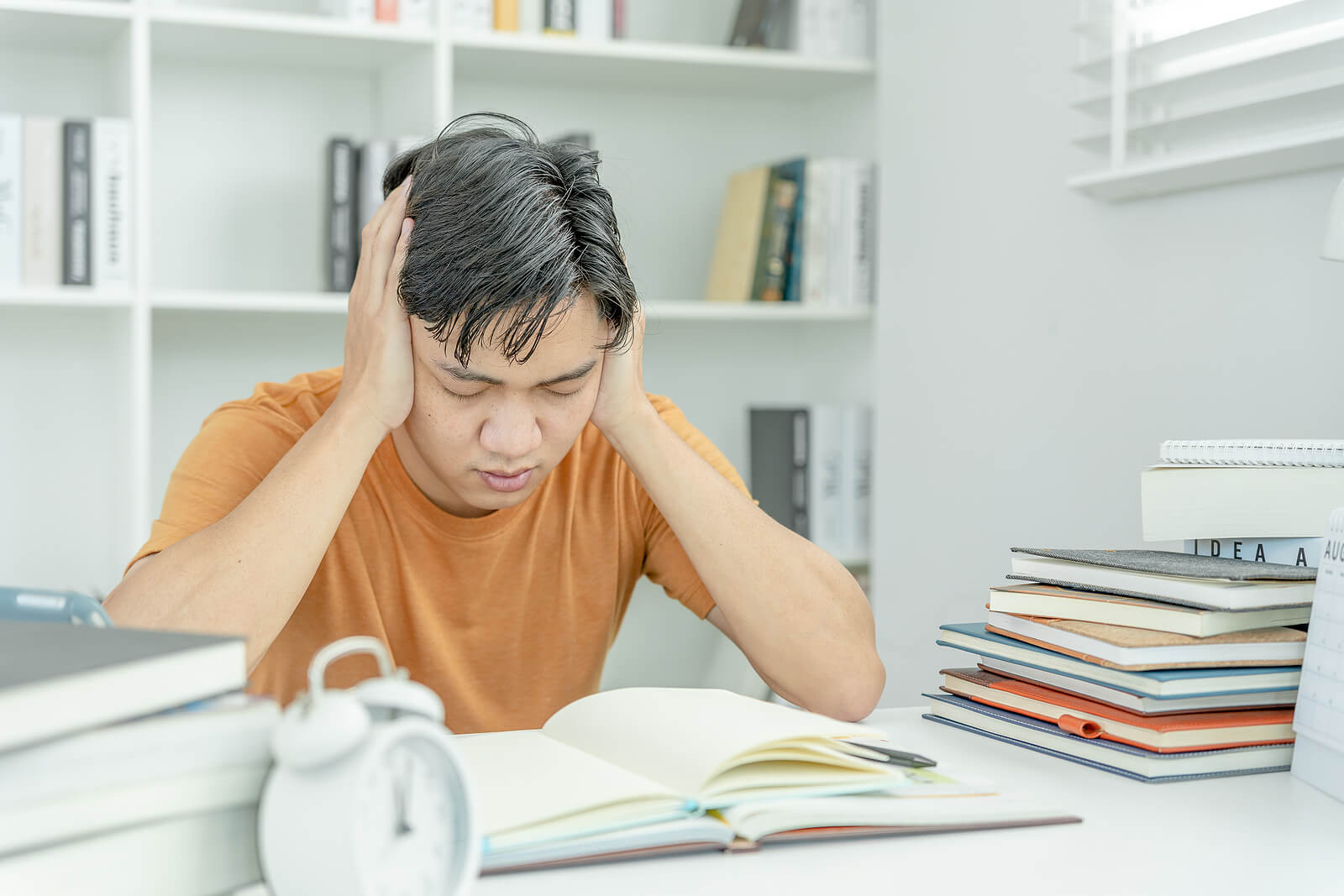While exams are a necessary aspect of university life, they can also cause an overwhelming amount of stress and anxiety for students.
The fear of not performing well can result in a wide range of unpleasant physical and mental symptoms. Luckily, there are effective ways to combat this stress and make examination periods more tolerable.
This blog post will delve into top relaxation techniques for university students to help ease exam stress.
What is stress, and why is it problematic?
Everyone experiences stress in their lives, and a little stress is harmless — it can even be helpful, motivating us to complete a task or focus on something that needs attention.
However, severe or prolonged stress is problematic and can appear through a combination of unwanted symptoms.
Stress can make you feel:
- overwhelmed
- anxious
- afraid
- full of dread
- depressed
- irritable
- angry
- lonely
- tense
- like all the fun has gone from life
- unable to concentrate on tasks.
The physical symptoms of stress include:
- sweating
- panic attacks
- difficulty breathing
- nausea
- dizziness
- headaches
- muscle aches
- fatigue
- diarrhoea or constipation
- changes to the menstrual cycle
- blurred eyesight
- high blood pressure
- chest pains
- itchy skin and rashes
- heartburn or indigestion
- sleep problems.
If you are experiencing any of these symptoms, you should always consult your GP.
Exams may be necessary, but your health is always the priority, so let’s look at how you can take back control and lessen or avoid the symptoms of stress.

How to reduce exam stress
Relaxation techniques are usually successful at bringing exam stress under control.
Consult your GP before starting these exercises if you have any medical conditions.
1. Breathing exercises
Breathing exercises are a simple and effective way to reduce exam stress and promote relaxation.
Sit alone in a quiet room and take a few slow, deep breaths — inhaling through your nose and exhaling through your mouth.
Another great option for calming your mind and body is the 4-7-8 breathing technique: inhale for four seconds, hold your breath for seven seconds, and exhale for eight seconds.
Repeat this several times until you feel calmer.
2. Progressive muscle relaxation
Progressive muscle relaxation is a technique that involves tensing and relaxing different muscle groups in your body.
This method aids in the reduction of muscle tension, which in turn promotes relaxation.
Set aside 15 minutes to complete this exercise in a quiet area with a comfy seat.
A reclined armchair, the floor, or a bed would be ideal. Loosen any tight clothing, remove your glasses or headwear, and then rest your arms in your lap or by your side.
Take a few slow, deep breaths.
Start by tensing the muscles in your feet and toes. Build the tension, squeeze as hard as possible, and hold for 15 seconds before releasing while counting to 30. Notice how your muscles feel when tense compared to when relaxed.
Move onto your legs, slowly building tension in your calves and quadriceps. Squeeze your muscles hard and hold for 15 seconds before slowly relaxing them as you count to 30.
Next, move your attention to your buttocks and repeat the process — build tension, hold for 15 seconds, and release for 30 seconds. Continue to breathe slowly and deeply.
Your arms and hands are next. As you build tension in your hands, ball them into fists, and then pull your fists into your chest and hold. After 15 seconds, relax your arms as you count out half a minute.
Then it’s time to tackle your neck and shoulders. Tense this area of your body by raising your shoulders to your ears, then hold and release — and check in with your breathing.
Your jaw is the next muscle to tense, and once you’ve completed that, the final area is your forehead. Build the tension up, hold for 15 seconds, release for 30, and then sit and enjoy total relaxation.
Repeat this entire exercise twice daily until you notice an improvement. When you feel calmer, you may wish to reduce your practice to once daily or continue with two sessions a day.
After regularly practising this method, you’ll recognise when your muscles are tensing when you feel stressed. You can then immediately relax them.
3. Visualisation
Visualisation involves imagining a calming and peaceful scene or environment.
Close your eyes and imagine a place that makes you feel calm and relaxed, such as a beach or a forest.
Focus on the details of the scene, like the sound of the waves or the scent of the trees. Spend a few minutes visualising this scene and allow your mind to relax fully.
Remember, you can return to this scene whenever you need to.
4. Mindfulness
Mindfulness is a type of meditation that involves focusing on the present moment and paying attention to your thoughts and feelings without judgment.
Find a quiet place to sit or lie down and focus on your breathing. When your mind wanders, gently bring it back to your breath.
Practice for a few minutes each day to help reduce stress and improve your ability to focus.
5. Exercise
Exercise is a wonderful way to reduce stress and promote relaxation. Even a short walk or 10 minutes of gentle stretching can help to reduce muscle tension and clear your mind.
Consider incorporating exercise into your daily routine during exam season (and beyond), even if it’s just a few minutes each day.
Final thoughts
We hope you’ve found our relaxation techniques for exam stress helpful.
Preparation is vital to reducing exam stress, so use your time management skills to schedule revision slots, and you’ll feel in control.
Visit your GP if you are experiencing any stress symptoms, and contact others for support if you’re struggling.
Check out our guide to managing stress at university for more information.
You don’t ever need to stress about your student accommodation, as we’ve got a wide range of quality student lets available, ideally located for each of the Leeds universities.



